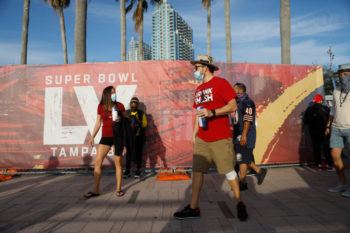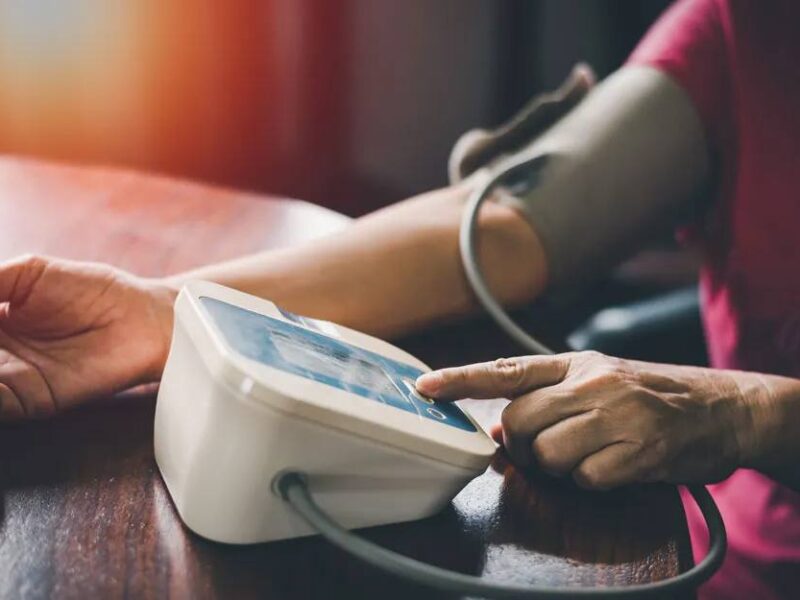How To Watch The Super Bowl Without Creating A Super Spreader Event

There’s good news for football fans: Those hosting or attending Super Bowl gatherings can take a few, simple steps to help prevent the spread of COVID-19.
So says Rebecca Fischer, an assistant professor of epidemiology and biostatistics in the School of Public Health at Texas A&M University.
“People are craving a sense of normalcy, and enjoying simple things like football is one way to experience that,” she said.
But the ongoing pandemic means that this year’s Super Bowl celebrations won’t look like they used to. Instead, participants should implement a few practical ways to have fun while staying as safe as possible.
The protocols observed during holiday gatherings and in the workplace should also be observed while watching the Super Bowl, Fischer said.
“Wearing a mask is an important way to stop respiratory droplets that might contain the coronavirus from spreading from person to person,” she said. “Masks contain your own respiratory droplets and also help keep you from inhaling those produced by others.”

This is important since some people can be infected with COVID-19 without knowing it, and unwittingly spread the disease to others.
Super-spreading events, where a lot of transmissions occur in one setting or from one individual, often happen because someone who does not even know they are sick passes the virus on to a large group, such as friends and family attending a social gathering, she said.
“This is why we want everyone to be diligent in all of the protective behaviors that can prevent even the smallest chance of spread when they are getting together,” Fischer said.
Physical distancing – staying six feet or more (or two arm-lengths) from others – also is important.
“But there are creative ways to have fun while keeping those short physical distances,” Fischer said. “For example, if the weather permits, go outside. Put your TV in the backyard so people can sit safely at a distance from each other.”
And instead of cheering loudly and exchanging high-fives or hugs when your team scores, Fischer recommends using noisemakers, applauding, or even jumping up and down a few times.
“The result is the same. We just have to shift our behavior a little bit if we want to protect others,” she said.
In addition, Fischer recommends giving each person individual servings of food and beverages.
“Instead of having a giant bowl of queso, for example, have a lot of single-serve bowls,” she said. “This keeps people from dipping into a shared bowl. And those preparing and serving the food should use tongs instead of their hands when moving food.”
The idea is to avoid having surfaces that a lot of people touch.
“We don’t want common-touch surfaces,” Fischer said. “It’s fine to touch your own things, but not other people’s. It’s also important to have lots of hand sanitizer available, just as has been the practice since the disease hit.”
For people who have a high risk of contracting COVID-19, Fischer recommends celebrating from home and connecting with others using Zoom or Skype.
“Get together virtually,” she said. “Stay home and put yourself on the screen with others to watch the game. You’ll have peace of mind while still sharing in the experience.”
Finally, Fischer offers a word of caution to Super Bowl fans.
“While it’s true that some people are getting vaccinated, it’s still a very small percentage of the population,” she said. “It’s certainly not a license to act as though you are now invincible or cannot still spread the disease to others. The data suggests that you can still pass the virus on to others, and can still pick up the virus, even if you have been vaccinated.”
By practicing these simple safeguards, Fischer said Super Bowl fans can stay safe while having fun with friends and family.
Media contact: Lesley Henton, lshenton@tamu.edu





